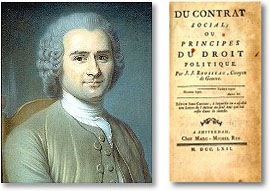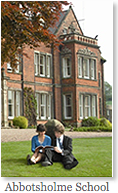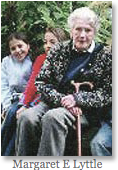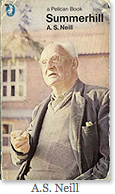bold ambitions… and human nature

Marbury School 1971-2004
How did it start, why did it finish?
When Marbury School opened in 1971, the policies of the school, were sensational. The media at the time seized on the priciples of ‘no punishment’ and ‘voluntary lessons’, as likely to lead to anarchy, and presumably the ruin of the attending students.
[see author's disclosure at the bottom of page... and click on 'forums' on top of page for discussions]
Within a few years, the differences between Marbury and the State Education Department system would start to become less pronounced, but at the time of the School’s opening, the contrast was stark. The school became a ‘lightening-rod’ for the latent hostilities between the legacy ’spare the rod, spoil the child’ hard-line values of the old-guard on the one hand and a more libertarian, non-punitive philosophy toward education and child rearing on the other.
The roots of Progressivism
 This
newer philosophy of ‘Progressive Education’ is recognised now, to have
had its roots in the writings of philosophers like Rousseau, who’s 1750
essay ‘Discours sur les sciences et les arts’ contended that: “…humans are by nature good - and it is society’s institutions that corrupt them” and in his two books published in 1762 ‘The Social Contract’ and ‘Émile’,
where Rousseau divides human development into five stages: Infancy
(birth to 2 yrs), The age of nature (2-12), Pre-adolescence (12-15),
Puberty (15-20) and Adulthood (20-25). [1]
This
newer philosophy of ‘Progressive Education’ is recognised now, to have
had its roots in the writings of philosophers like Rousseau, who’s 1750
essay ‘Discours sur les sciences et les arts’ contended that: “…humans are by nature good - and it is society’s institutions that corrupt them” and in his two books published in 1762 ‘The Social Contract’ and ‘Émile’,
where Rousseau divides human development into five stages: Infancy
(birth to 2 yrs), The age of nature (2-12), Pre-adolescence (12-15),
Puberty (15-20) and Adulthood (20-25). [1]
Early Progressive Schools
 The inception of progressivism in Schooling can be traced to Dr. Cecil Reddie, who was, “educated
in Göttingen, Ger., where he was greatly impressed by the progressive
educational theories being applied there. In 1883 he joined the radical
Fellowship of the New Life in England and decided to establish a school
for boys based on socialist principles.” [2]
The inception of progressivism in Schooling can be traced to Dr. Cecil Reddie, who was, “educated
in Göttingen, Ger., where he was greatly impressed by the progressive
educational theories being applied there. In 1883 he joined the radical
Fellowship of the New Life in England and decided to establish a school
for boys based on socialist principles.” [2]
In 1889 he founded the Abbotsholme School in Derbyshire. The school, which continues to this day, states that Cecil Reddie: “…wrote down his aims for the school; not about academic success or being top at rugby or cricket but about how we should learn to love, and work cooperatively with, our fellow human beings; about compassion, unselfishness and service to others.” and records Dr. Reddie’s educational philosophy thus:
“Central to Reddie’s radical thinking was a shift away from the rigid conformity of the traditional public school towards spontaneity, leadership and compassion for others, based on co-operation rather than competition, a friendly, supportive relationship between staff and pupils, and a whole-hearted respect for the environment.”[3]
Marbury’s Direct Influences
 The
Marbury founders were strongly influenced by two progressive schools,
Melbourne’s Prehsil School, founded in 1931 by Margaret J R Lyttle and
continued by her niece Margaret E Lyttle in 1944, and A.S. Neill’s
Summerhill in Suffolk, England, founded in 1921. (Some of the core-group
of Marbury founders had personal experience as previous parents at
Preshil so the culture and policies of Preshil were quite familiar to
them) These two progressive schools symbolised a kind of polarity in the
progressive education spectrum, between which Marbury struggled at
first to position itself. As the 2006 ABC Radio National program
‘Hindsight’ opined, “Summerhill represents what the British writer Robert Skidelsky calls the ‘extreme libertarian wing’ of progressive education.” [4]
The
Marbury founders were strongly influenced by two progressive schools,
Melbourne’s Prehsil School, founded in 1931 by Margaret J R Lyttle and
continued by her niece Margaret E Lyttle in 1944, and A.S. Neill’s
Summerhill in Suffolk, England, founded in 1921. (Some of the core-group
of Marbury founders had personal experience as previous parents at
Preshil so the culture and policies of Preshil were quite familiar to
them) These two progressive schools symbolised a kind of polarity in the
progressive education spectrum, between which Marbury struggled at
first to position itself. As the 2006 ABC Radio National program
‘Hindsight’ opined, “Summerhill represents what the British writer Robert Skidelsky calls the ‘extreme libertarian wing’ of progressive education.” [4]
 At
Summerhill, controversially, lessons had always been voluntary, and
this was the approach followed by Marbury in its first days. However,
after only a few months, this policy was found to be unworkable and the
school reverted to the more structured approach of Preshil, where
classes were compulsory, but freedom of expression was encouraged. Over
time, the school’s philosophy came to be encapsulated by the phrase
“Freedom without License”, to reassure parents and the community that
Marbury would uphold acceptable moral and behavioural standards.
However, ironically, this phrase was in fact taken directly from the
internationally renowned social psychologist and philosopher Erich
Fromm’s introduction to A.S. Neil’s book Summerhill, published in 1960.
At
Summerhill, controversially, lessons had always been voluntary, and
this was the approach followed by Marbury in its first days. However,
after only a few months, this policy was found to be unworkable and the
school reverted to the more structured approach of Preshil, where
classes were compulsory, but freedom of expression was encouraged. Over
time, the school’s philosophy came to be encapsulated by the phrase
“Freedom without License”, to reassure parents and the community that
Marbury would uphold acceptable moral and behavioural standards.
However, ironically, this phrase was in fact taken directly from the
internationally renowned social psychologist and philosopher Erich
Fromm’s introduction to A.S. Neil’s book Summerhill, published in 1960.
“Even though no school like Summerhill exists in the United States today, any parent can profit by reading this book. These chapters will challenge him to rethink his own approach to his child. He will find that Neill’s way of handling children is quite different from what most people sneeringly brush aside as “permissive.” Neill’s insistence on a certain balance in the child-parent relationship–freedom without license–is the kind of thinking that can radically change home attitudes.” - Erich Fromm [5]
Marbury’s Founders
Marbury was conceived as an incorporated non-profit association with a Board of Governors, who declared at the school’s outset that it was a “co-educational, non-sectarian, independent, non-competitive, non-authoritarian school.” However, even before the opening of the school in February 1971, there had been major ructions between the founding group of Adelaide intellectuals who conceived and promulgated the venture.
1 | 2 | 3 | 4 | 5
[1] http://www.infed.org/thinkers/et-rous.htm
[2] http://www.britannica.com/EBchecked/topic/494634/Cecil-Reddie
[3] http://www.abbotsholme.com/background/history.asp
[4] http://www.abc.net.au/rn/hindsight/stories/2006/1674657.htm
[5] http://www.nospank.net/fromm.htm
[This article is still being written, please return soon to read: part #2, and take part in the discussion]



As a former pupil of Marbury school, I came back trying to search for its philosophy after studying child development theories at uni.
The theorists of reggio, montessori and steiner are well referenced and widely used but i think that the work of margaret langley should also be recognised too. From what i remember there was alot of emphasis on social interactions, that of a child centred curriculum and of solving problems by talking it out with the child. I loved the gardens and the outdoors that surrounded the school, the old buildings and the constancy of familiar teachers right through. I can remember doing woodwork as a young child and being encouraged to explore different mediums of art in the barn. I was sad to hear that Marbury had closed down. And I wonder why it was that that happened. I thought Marbury was a good school.
Ella, this series of articles will explore the essential nature of the school, examine its culture and the reasons why Marbury did eventually fail. - I hope you will return to the site and take part in the upcoming discussion forum.
I was a pupil at Marbury in the 80’s I tried for years to get info on it (the website had mysteriously disappeared). Then I discovered it had closed down.
What was the documentary that was made in the 1980’s? Is it related to the Education Department filming us during that time?
I’d love to see it.
Marbury saved me, without it I doubt I would have made it to adulthood. I seriously loved that crazy but ultimately very sane (yes I know that is a paradox) school. I owe that place and Mag and Margie, and Leonard and Shep a lot.
I even got into university because of them.
I’ll never forget the day Leonard walked into the dining room at supper with a peacock under his arm.
Only at Marbury!
The documentary made during the 1980’s was a ’sponsored documentary’ paid for partly by the school and a private sponsor. The film was produced and directed by Margaret Langley’s son Simon, (see author’s disclosure at the bottom of the 1st page of the article). There was a lot of editorial control of the film’s content by the school, which compromised the film’s already questionable basis as an objective ‘documentary’. However, despite the overwhelmingly ‘promotional’ nature of the content, and lack of any informed critical analysis or comparative context, the film’s strengths were in the various typical Marbury scenes of children happily playing in the grounds, interviews with some surprisingly eloquent young students, and of course footage of a ’school-meeting’ with Margaret Langley, as was typical of her style, in full control.
Your brief account of your time there clearly suggests that your own personal experience at Marbury was highly beneficial to you, and it is clear that many hundreds of children were helped by the devoted teachers and Margaret Langely herself of course. However, it has to be said that the same perspective will not be shared by all students or teachers who were enrolled or became involved in the school. The school was started with lofty ambitions and principles, but many would recognize now the degree to which Marbury became increasingly insular under Margaret Langley’s leadership, and that various problems developed in relation to the ‘organizational culture’ of the school.
This series of articles on Marbury will grow over time and we plan to add some interactive features soon to enable free and open, threaded-discussions by the many people still interested to discuss and record their memories, both positive and critical. We will do our best to facilitate a fair and transparent account of the school and welcome all those who wish to contribute. - This documetary account of the school, will be without the previous editorial constraints imposed on the 1980’s film documentary. (Sections of that film will also be made available within the various articles)
I went to Marbury and I hated most of it. The rules were so unclear! One day it was optional lessons, and the next day you got in trouble. Intense favoritism by some of the teachers especially towards the children of other teachers; sexist comments and a very restrictive atmosphere when it came to teenage relationships, and overall a very patchy and substandard bunch of teachers, including the monosyllabic Shep.
Getting hauled out of yr 12 lessons just before the exams to serve bloody tea and scones to visitors didn’t help either, and neither did the day-long inquisitions, called assemblies, where Mag used to put individual students on the stage and humiliate them verbally for all sorts of crimes, such as an attempted nose-piercing or dope smoking at home.
And it was almost cult-like! You were not supposed to speak ill of Marbury, ever, in any circumstance! I remember that warning being repeated often, with lawsuits threatened.
Sometimes Marbury was fun, sometimes it was bizarre, but most of the time it was bloody awful. And cold, and the sandwiches sucked.
former student.
Dear ‘Gremlin’… thanks for your comments. The aspects of the school to which you refer and your criticisms are valid and do resonate with the author of this article, and many of his experiences there. I’m curious about which period you were a student, the 70’s, 80’s or 90s?